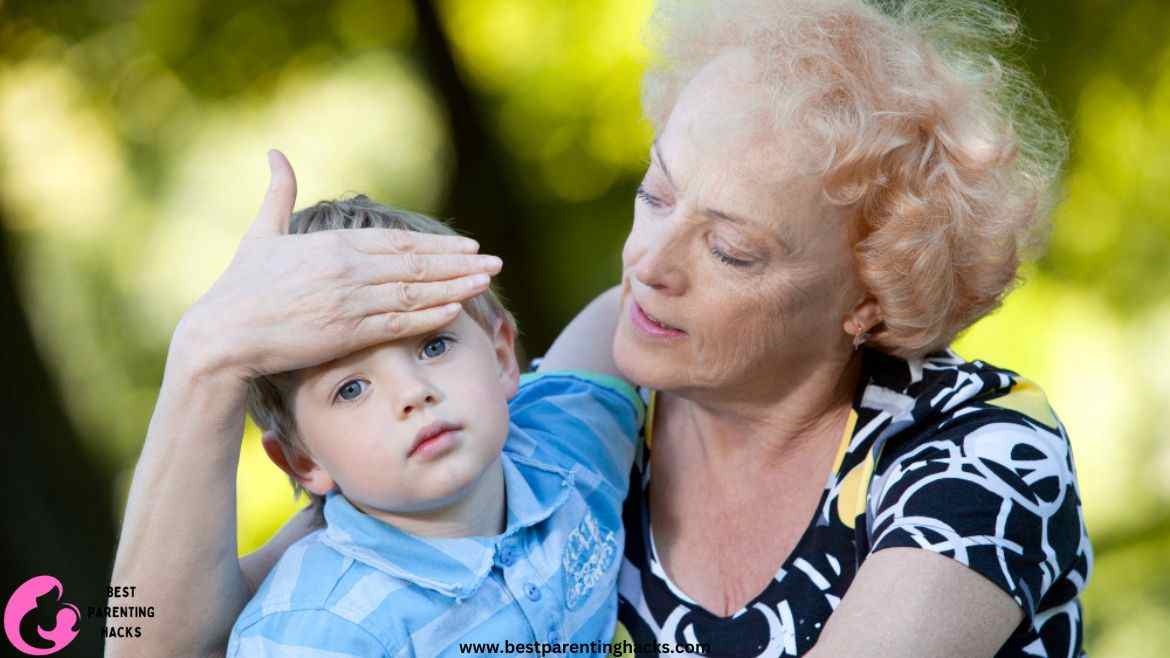Table of Contents
For any parent, it might be confusing to see their kid suddenly displaying fear or disdain for their grandma. This situation plays out in a lot of homes, leaving families perplexed and frequently upset. The change might come suddenly, from the happy expectation of a grandchild-grandparent bonding moment to an unpleasant rejection. This shift stirs up a range of emotions within the family in addition to impacting the child’s relationship with their grandma. The first step in dealing with this behavior is realizing that it is not unusual. This sudden change occurs due to reasons, such as preferences and stages of growth so it’s crucial to approach the situation with empathy and acceptance.
“Why does my toddler suddenly dislike grandma?” is the central question of this topic, and the intricate realm of toddler development and psychology explains. Fundamentally, this conduct is rarely motivated by dislike in the strict meaning of the word. It’s a sign that young children are starting to understand themselves, how they interact with others, and how they react to what’s happening around them. Although difficult, this stage is a typical aspect of growing up. Acknowledging this can ease some of the immediate worries and open the door to approaches designed to restore the grandchild-grandparent connection to a loving standard.
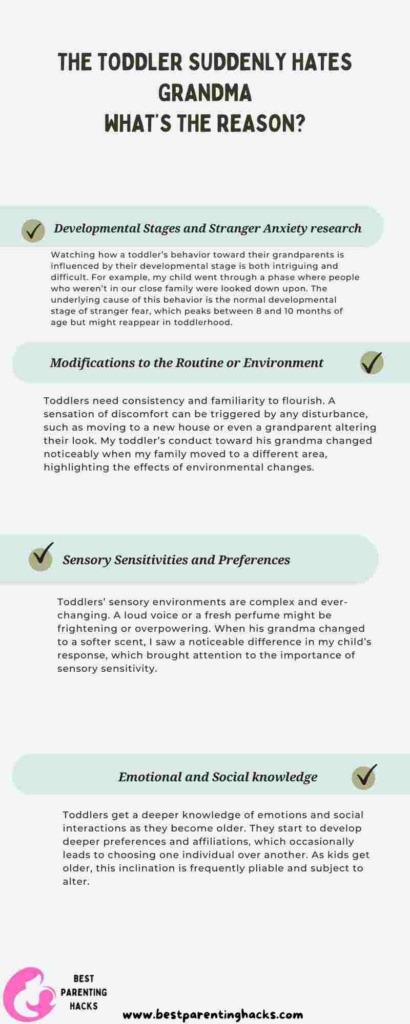
Understanding the Behavior
Investigating the causes of a toddler’s abrupt dislike for their grandma calls for a combination of developmental milestone knowledge and psychological insight. Toddlers are in a developmental stage where their social groups and cognitive capacities are expanding quickly. Even if they were used to them before, this enlargement makes them naturally wary of strange circumstances or people. During this time, it is typical to have separation anxiety and stranger anxiety, which show themselves as a reluctance or outright unwillingness to engage with some people, including close family members.
1. Developmental Stages and Stranger Anxiety: Watching how a toddler’s behavior toward their grandparents is influenced by their developmental stage is both intriguing and difficult. For example, my child went through a phase where people who weren’t in our close family were looked down upon. The underlying cause of this behavior is the normal developmental stage of stranger fear, which peaks between 8 and 10 months of age but might reappear in toddlerhood.
2. Modifications to the Routine or Environment: Toddlers need consistency and familiarity to flourish. A sensation of discomfort can be triggered by any disturbance, such as moving to a new house or even a grandparent altering their look. My toddler’s conduct toward his grandma changed noticeably when my family moved to a different area, highlighting the effects of environmental changes.
3. Sensory Sensitivities and Preferences: Toddlers’ sensory environments are complex and ever-changing. A loud voice or a fresh perfume might be frightening or overpowering. When his grandma changed to a softer scent, I saw a noticeable difference in my child’s response, which brought attention to the importance of sensory sensitivity.
4. Emotional and Social knowledge: Toddlers get a deeper knowledge of emotions and social interactions as they become older. They start to develop deeper preferences and affiliations, which occasionally leads to choosing one individual over another. As kids get older, this inclination is frequently pliable and subject to alter.
You Might Also Like to Read: Baby Looks Everywhere but Me. What Is the Reason?
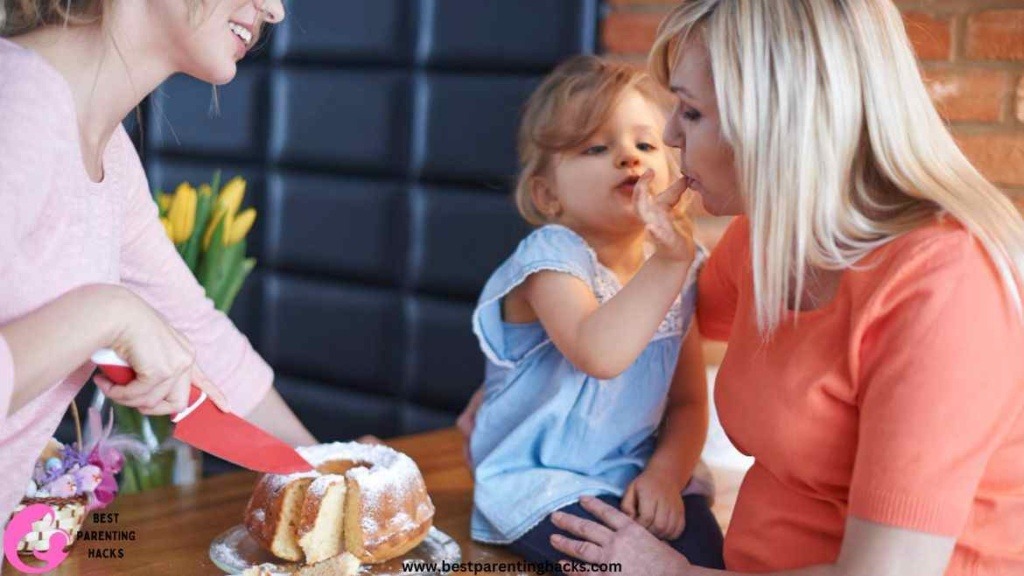
A toddler’s unexpected rejection might have a profound emotional impact on the entire family. For the problem to be handled properly, both sides must have tact and understanding.
1. Effect on Parents: For grandparents, who may have imagined a deep and loving relationship with their grandchild, the sensation of rejection can be very hurtful. When my son began to distance himself, my mother was devastated, wondering what she may have done to provoke him. Reassuring grandparents that this stage does not indicate their value or their grandchild’s affection for them is vital.
2. Parental Stress: It hurts to watch your child reject a loved one and to know how much anguish that causes. It may be quite stressful to try to heal the connection while juggling the emotional demands of both your parent and your child. Patience and honest communication have been essential to my journey through this difficult period.
3. Toddlers’ Perplexity and Fear: It’s crucial to keep in mind that toddlers don’t behave badly. Their actions stem from uncertainty, anxiety, or uneasiness. It’s critical to support them in navigating their emotions by acknowledging their sentiments and offering confidence.
4. Family Dynamics: The pressure of this circumstance may have an impact on the general dynamics of the family, resulting in conflict and miscommunication. It’s critical to tackle the problem as a family, cooperating to help the child and each other get through this stage.
5. Long-Term Connection Concerns: It’s common to be concerned about how this conduct can affect the grandchild-grandparent connection in the long run. While this is a legitimate worry, it’s also critical to keep in mind that these relationships may be strengthened given enough time, patience, and appropriate guidance.
You Might Also Like to Read: My Baby Ignores Me When I Call His Name: What’s the Reason?
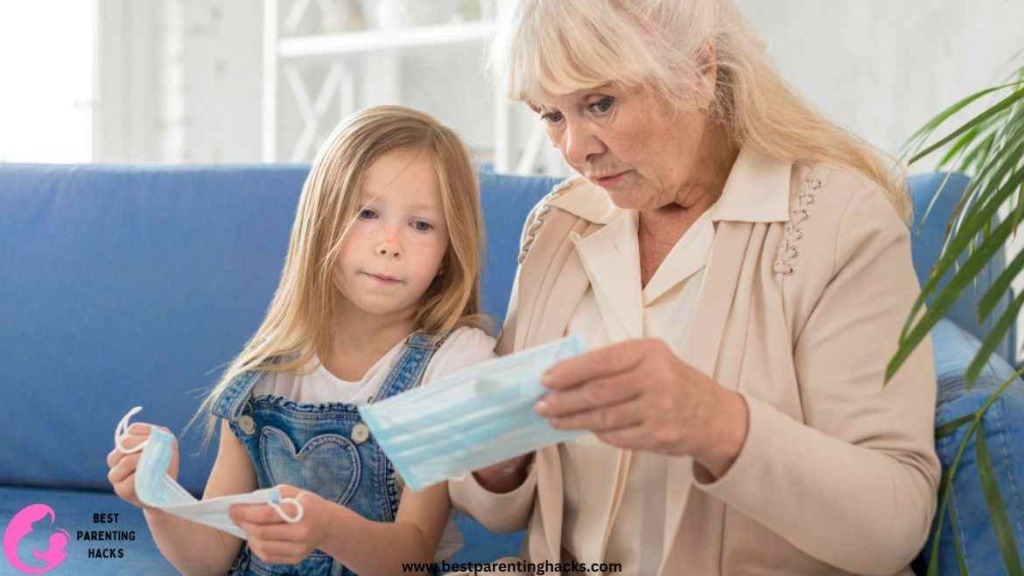
Strategies for Rebuilding the Relationship
A careful, methodical approach is needed to mend the bond between a toddler and their grandma. Achieving the ideal mix between promoting engagement and honoring the toddler’s comfort zone is crucial.
1. progressive Reintroduction: We were able to successfully reacquaint my son with his grandma through progressive steps. He was able to reestablish himself with her at his speed by beginning with brief, non-intrusive visits. By taking things slowly, he was able to regain his comfort level and faith in her.
2. Creating Positive connections: Positive memories and connections can be made by including the toddler and the grandma in activities that they both like. Engaging in activities like playing a basic game or reading a beloved book together might act as the foundation for a more solid connection.
3. Involving the Toddler in Planning: It has helped to give my toddler a voice in when and how he interacts with his grandma. It lessens any fear or resistance he might have by empowering him and giving him a greater sense of control over the circumstance.
4. Preserving Consistency: It’s critical to maintain consistency in the grandmother’s actions as well as in the general strategy for mending the connection. It gives the youngster a sense of consistency and security by assisting in their understanding of what to expect.
5. Patience and Understanding: Above all, it is crucial that everyone concerned exercise patience and understanding. Recognizing that obstacles are expected, and advancements might be slow is essential. Remaining optimistic and acknowledging minor accomplishments can have a significant impact over time.
What Not to Do
Certain strategies might cause more harm than good while handling this delicate circumstance. It’s just as crucial to know what not to do as it is to know what to do.
1. Forcing Interaction: When a child isn’t ready, forcing them to interact with their grandma might make them more resistant and anxious. I should have learned this lesson sooner because my attempts to forge a relationship ended up making my son feel even more distressed.
2. Overwhelming the Toddler: It might be overwhelming to give a toddler too much too quickly, such as too many new activities or excessively effusive welcomes. It’s important to strike a balance that honors the toddler’s requirement for familiarity and progressive exposure.
3. Ignoring the child’s Feelings: A child may feel as though they are not understood or heard if their feelings are minimized or dismissed. To make them feel safe, you must acknowledge their feelings and offer confidence.
4. Neglecting Open Communication: Misunderstandings and wounded sentiments might result from not having an honest conversation with all family members. A more encouraging atmosphere may be created by keeping channels of communication open, exchanging observations, and having group discussions on tactics.

When to Seek Professional Advice
Toddlers frequently experience stages of preference and aversion, but there are occasions when consulting a professional might be helpful.
1. Persistent or Escalating conduct: If a child exhibits conduct that continues unabated for a lengthy length of time or becomes worse, there could be a more serious problem at hand. Speaking with a child psychologist might help you get ideas and tactics that are specific to your child’s needs.
2. Signs of Distress: Seeking professional assistance might be crucial if the toddler exhibits symptoms of distress that go beyond the usual confines of separation or stranger fear, such as extended weeping, disturbed sleep, or altered feeding patterns.
3. Effect on Family Dynamics: Seeking guidance can make navigating these difficulties easier when the circumstance starts to have a major negative influence on family dynamics, leading to tension or conflict.
4. Difficulty in Implementing Strategies: A professional can provide fresh viewpoints and methods if you are having trouble putting strategies into practice or if the ones you have tried haven’t worked.
5. Concerns About Developmental Delays: A professional evaluation can offer guidance and clarity if there are worries that the behavior may be connected to developmental delays or other underlying problems.
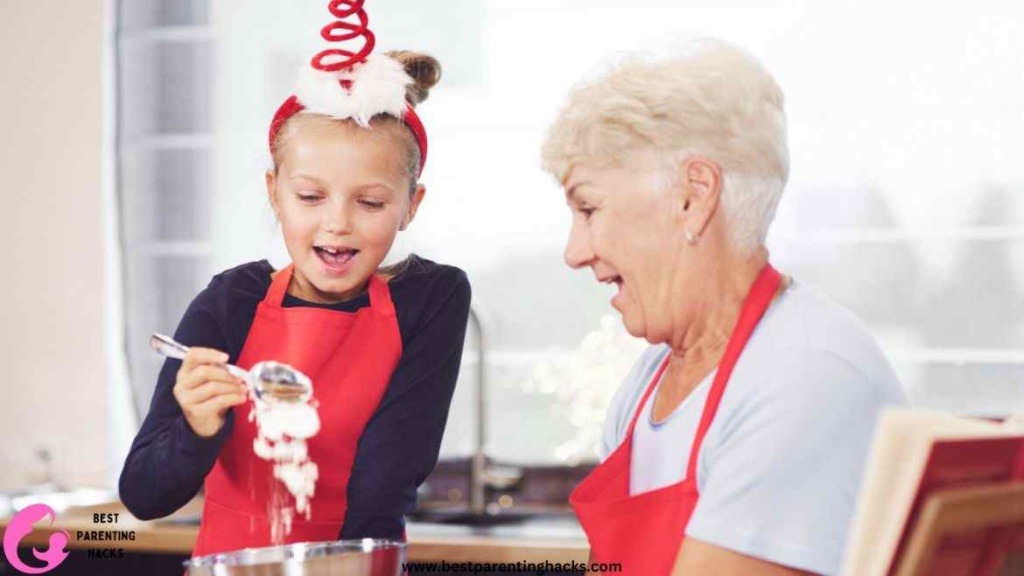
Personal Experience and Observations
Overcoming my toddler’s abrupt dislike for his grandma has been a difficult but ultimately fruitful journey. We were unprepared for the circumstances that turned our planned family get-togethers into tense and upsetting times. At first, as I tried to figure out what was causing my son’s conduct and looked for solutions to patch up their once-close relationship, I found myself vacillating between worry and aggravation.
We saw improvement via a lot of patience, honest communication, and trial and error. The method of gradual reintroduction together with the establishment of positive associations worked well. Seeing their relationship slowly but surely revive, characterized by brief moments of intimacy and laughter, was touching. These incidents were timely reminders about the resilience of family connections as well as comprehension and empathy in overcoming stumbling blocks.
It also dawned on me how crucial it is to honor my son’s timing and avoid pressuring him to talk. It highlighted the significance of allowing him a say in the conversation. This experience has highlighted for me how crucial perseverance is, recognizing that repairing relationships is a journey.
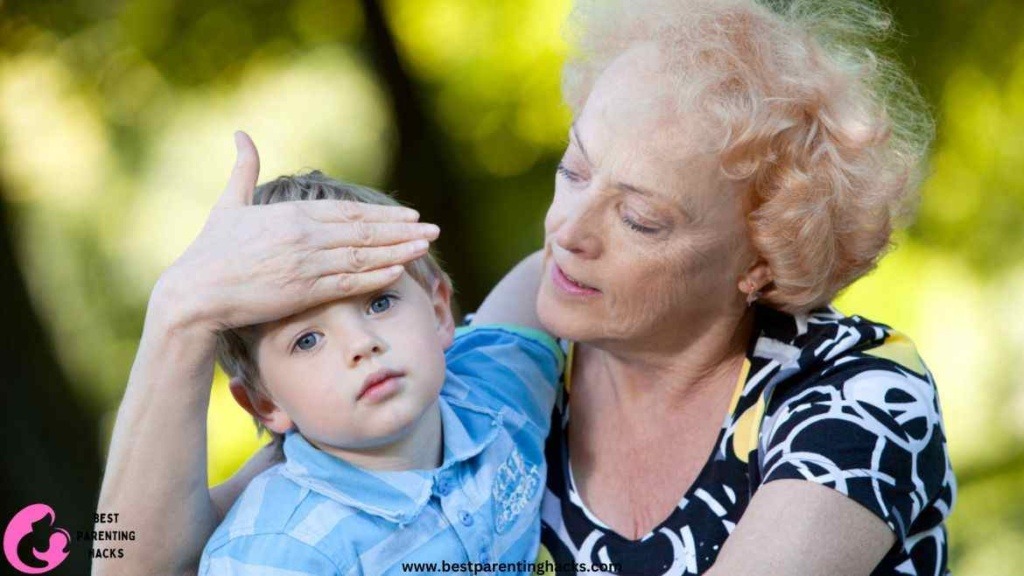
Conclusion
In our household, we’ve gained insights while navigating my grandson’s aversion, to his grandmother. This experience has shown how crucial patience, compassion, and understanding are in handling toddler behavior complexities. By sensitively approaching the issue at hand we were able to heal the rift between my child and grandmother, demonstrating family resilience during difficult times.
The dynamic nature of relationships and the necessity of being adaptable and transparent while handling any difficulties they may bring have also been brought to light by this experience. It has highlighted how crucial communication is in establishing an atmosphere of love, care, and support for all members be it within or without family boundaries.
On this note, this journey has become a metaphor for love’s strength, endurance, and adaptiveness in overcoming difficulties as well as binding people together. It serves both as a reminder about those precious moments afterward as well as underlining the unbroken link between grandparents and their grandchildren.
FAQs
Why did my child take a dislike to my grandmother suddenly?
• Developmental phases, schedule modifications, or sensory sensitivity are frequently to blame. It’s not a long-term change in their emotions; it’s just a phase.
How can I facilitate a reunion between my toddler and grandmother?
• Some strategies that work well include gradual reintroduction, building good connections, letting the child participate in visitation planning, staying consistent, and demonstrating tolerance and understanding.
Is it OK to make my kid engage with grandma?
• Requiring engagement can increase resistance. It’s critical to honor the toddler’s comfort zone and pace.
What happens if my toddler doesn’t behave differently with grandma?
•To investigate underlying problems or create customized tactics, consulting a child psychologist might be beneficial if the behavior continues or worries you.
How do grandparents deal with rejection?
•Their discomfort can be lessened by having open discussions about the nature of this stage and making sure they realize it’s not personal.
Does my toddler’s conduct have an impact on how they interact with other family members?
• You can lessen any bad effects and assist your child in keeping positive ties with every member of the family by taking the appropriate measures.
Is it typical for toddlers to experience periods of preference for one parent or grandparent over the other?
• Indeed, this is a typical developmental stage as they learn to manage their feelings and relationships.

